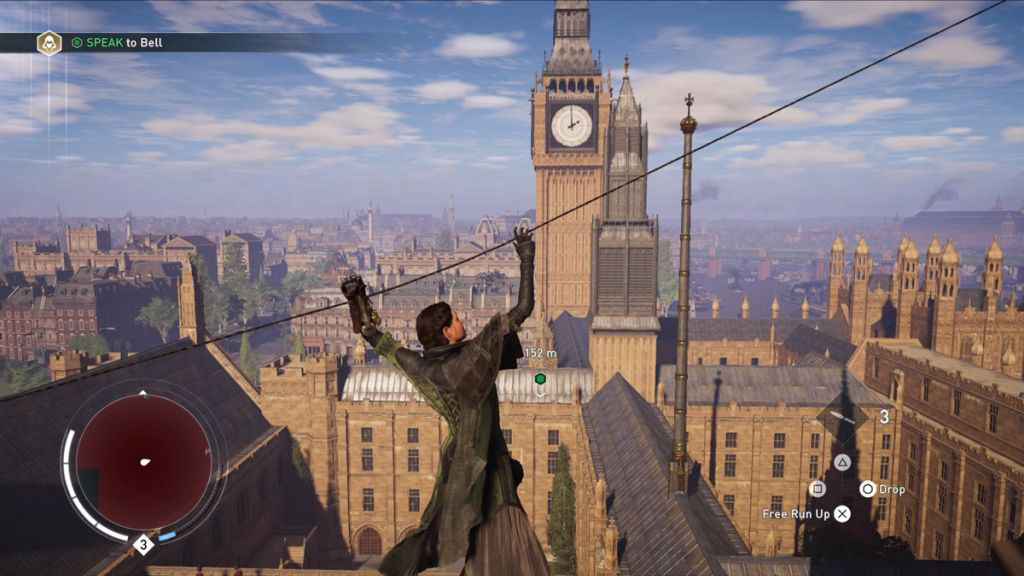Assassin's Creed is the perfect series to play while stuck at home — here's why
Turn to Assassin’s Creed for the perfect virtual tourism experience

If you’ve played Assassin’s Creed, then you know its titular maxim: “Nothing is true; everything is permitted.” While the first part of the statement feels very true to the world around us these days, the latter does not. While COVID-19 restrictions are beginning to ease slightly, many of us are still stuck at home — and even when we do go out, our options seem limited to the same old grocery stores, pharmacies and parks.
The desire to go somewhere exotic is stronger than ever, but that’s not a very good idea in the physical world. Instead, I’ve found myself immersed in the Assassin’s Creed series once again.
- Play the best Assassin’s Creed games
- PS5 vs. Xbox Series X: Which console will win?
After I reviewed the positively massive Assassin’s Creed Odyssey, I was ready to step away from the series for a good, long while. But when Ubisoft announced Assassin’s Creed Valhalla few weeks ago, I decided to boot up the historical action/stealth series once again, and made a fortunate discovery: Assassin’s Creed is perhaps the next-best thing to taking a real overseas trip. While before, the prospect of traipsing around the Greek islands for 80-plus hours sounded exhausting, it’s now just the kind of escapism that I didn’t even know I needed.
If you’ve never played an Assassin’s Creed game before, allow me to lay out the case for why now is a better time than ever to give it a shot. And if you have, now is the time to pick a location and take a virtual vacation there — just with a lot more violence and mayhem than real life usually allows.
Assassin’s Creed’s meticulous recreations
For those of you who haven’t played Assassin’s Creed before, the pitch is pretty simple: For millennia, two secret societies have been at war for the future of mankind. The Templars believe that they must control mankind for its own good. The Assassins believe that freedom is a better alternative, even if they have to commit murder to preserve it. In each game, you take control of an Assassin at a vital point in history, such as the Third Crusade, the Industrial Revolution or the Peloponnesian War, and participate in some of the time period’s most important events.
The story in Assassin’s Creed is half science-fantasy mumbo-jumbo, half historical tourism. And it’s the latter concept that makes the series such an excellent quarantine companion. Ever since the first entry, Ubisoft has prided itself on doing a tremendous amount of historical research, then recreating ancient (or medieval, or early modern) cities just as they might have appeared hundreds or thousands of years ago. Even if you don’t care for the gameplay (which can be clunky ) or the narrative (which can be convoluted), the sheer amount of detail that Assassin’s Creed puts into recreating the past is impressive.

While every game has some rural or wilderness areas to explore, the cities are usually the big draws. From medieval Jerusalem in the first game to ancient Athens in the most recent one, the cities in Assassin’s Creed are filled to the brim with period architecture, streets bustling with people, animals and vehicles, and recognizable landmarks.
Sign up to get the BEST of Tom's Guide direct to your inbox.
Get instant access to breaking news, the hottest reviews, great deals and helpful tips.
Earlier editions of Assassin’s Creed catalogue all of these landmarks in an informative codex that you can access at any time; the two most recent games instead offer “Discovery Tours,” which let you explore landmarks like a virtual museum, free from combat or story objectives. (If you’re a nonviolent type of gamer, you can actually buy the Discovery Tours on their own as standalone games.)

I’ve always enjoyed the level of verisimilitude in Assassin’s Creed, but it wasn’t until recently that I realized just how much I needed the facsimile of travel in my life. Lots of games conjure up beautiful fantasy worlds, but they’re very clearly not real. Other games bring you to real locations, but only for short, linear levels. Assassin’s Creed lets you explore at your leisure, and gives you plenty of objectives to complete across a gigantic map.
As I rode my horse down a Greek mountainside, the city of Athens and the Aegean Sea stretched out before me, blue skies above and flowers all around, I realized how much I missed the simple joy of going somewhere new. Granted, we can’t go to Greece every weekend, even under normal circumstances. But most of us are only a car or train ride away from somewhere we’ve never been before, and it’s healthy to go exploring now and then. Assassin’s Creed is about as close as you can get to that sense of exploration in the digital space.
Assassin’s Creed time periods and locations
The trick to enjoying Assassin’s Creed as a digital travel replacement is to treat the series like a travel agency. Start with a destination in mind, then select the package that includes all the sights you want to see. Without spoiling anything, the story is roughly the same in each game: The Templars want to control mankind with a powerful ancient artifact, and the Assassins have to take out a number of key historical figures in order to stop them. The narrative quality varies from game to game, but the location and time period are really what set one game apart from another.

With that in mind, here’s a handy chart that includes the locations, time periods and major historical events from each mainline Assassin’s Creed game:
| Row 0 - Cell 0 | Location | Major Cities | Year | Historical Event |
| Assassin’s Creed | The Holy Land | Jerusalem, Acre, Damascus | 1191CE | Third Crusade |
| Assassin’s Creed II | Italy | Florence, Forli, Venice | 1476 CE | Italian Renaissance |
| Assassin’s Creed: Brotherhood | Italy | Rome | 1499 CE | Italian Wars |
| Assassin’s Creed: Revelations | Turkey | Constantinople | 1511 CE | Şahkulu Rebellion |
| Assassin’s Creed III | Thirteen Colonies | Boston, New York | 1760 CE | American Revolution |
| Assassin’s Creed IV: Black Flag | Caribbean | Havana, Nassau, Kingston | 1715 CE | Golden Age of Piracy |
| Assassin’s Creed Unity | France | Paris, Versailles | 1789 CE | French Revolution |
| Assassin’s Creed Rogue | North Atlantic | New York | 1752 CE | Seven Years War |
| Assassin’s Creed Syndicate | England | London | 1868 CE | Industrial Revolution |
| Assassin’s Creed Origins | Egypt | Alexandria, Memphis | 49 BCE | Roman Conquest of Egypt |
| Assassin’s Creed Odyssey | Greece | Athens, Sparta, Korinthia | 431 BCE | Peloponnesian War |
Assassin’s Creed II, Assassin’s Creed IV and Assassin’s Creed Origins are good jumping-on points for the series, although most of the games work as standalone experiences. The only major exceptions are Brotherhood, Revelations and Rogue, which are part of larger ongoing story arcs.
While it may be a while before real-world travel returns to normal, Assassin’s Creed gives us a way to see the world and learn a thing or two about history along the way. The series can be pretty violent, and the games can get a little long and repetitive, if you want to complete every last objective. But at least there’s some gorgeous scenery along the way.
Marshall Honorof is a senior editor for Tom's Guide, overseeing the site's coverage of gaming hardware and software. He comes from a science writing background, having studied paleomammalogy, biological anthropology, and the history of science and technology. After hours, you can find him practicing taekwondo or doing deep dives on classic sci-fi.

